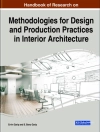In Österreich entstehen derzeit viele neue Gesundheitsinitiativen und -einrichtungen ebenso wie innovative Versorgungskonzepte.
Space Anatomy zeigt, wie und wo diese geplant und umgesetzt werden und welche Folgen das für Städte, Gemeinden und den unmittelbaren Alltag in der Nachbarschaft mit sich bringt. Anhand von Beiträgen internationaler Gastautor*innen und mehreren Gesprächsrunden mit Expert*innen nimmt dieses Buch die Bedeutung von Architektur und Raumplanung für die räumlichen Aspekte von Gesundheit und Public Health in den Fokus. Zahlreiche in Österreich realisierte Projekte – von Gesundheitszentren über Pflegeheime bis hin zu den Ergebnissen privater Initiativen – werden als Beispiele vorgestellt.
लेखक के बारे में
Magdalena Maierhofer works and conducts research at the intersection of healthcare infrastructure, public health, and spatial design, as well as developing new planning concepts for health-related infrastructures in both urban and rural contexts. In doing so, she studies the spaces and practices of formal and informal production in social locations and infrastructures. She has been teaching and conducting research in TU Wien’s Research Unit for Local Planning (IFOER) since 2018, and is the project leader for both national and international research projects.
Evelyn Temmel is co-founder of the BELT architecture office, which implements diverse projects spanning city planning, architecture, and intervention. Since 2017, she has also been teaching and conducting research on the reciprocal interactions between health and architecture in the Building Theory and Design Section at TU Wien. Her work there focuses on analyzing building typologies and usage concepts and exploring the ways these adapt and transform in relation to societal change.
Judith M. Lehner works at the intersection of theory and practice in the fields of architecture and urbanism. As an urban planner with a Ph D, she explores processes of transformation in societal crises and researches collective housing and social infrastructure in Latin American and European cities. She coordinates the Research Center ‘New Social Housing’ at TU Wien’s Faculty for Architecture and Planning.
Lene Benz is an urban designer and cultural sociologist who works collaboratively at the intersection of city planning and urbanism, experimental design, and architecture. In both her urban design and artistic practice, she focuses on communitization strategies for living and working. Benz has been has worked at the Architekturzentrum Wien since 2018; there, among other things, she curates the Architektur.Film.Sommer project and was the project leader for the ‘wie wir wohnen’ city lab in 2019.
Kathrin Schelling has held a number of teaching positions at TU Wien since 2013. Her research and teaching focuses on the spatial aspects of health and wellbeing. She is a co-founder of the Akt collective, which developed the concept for the 2023 Austrian pavilion at the Eighteenth International Architecture Exhibition in Venice alongside Herman Czech. She worked in a number of different firms both during and after her architecture studies at TU Wien, and currently works at SWAP Architekten.












